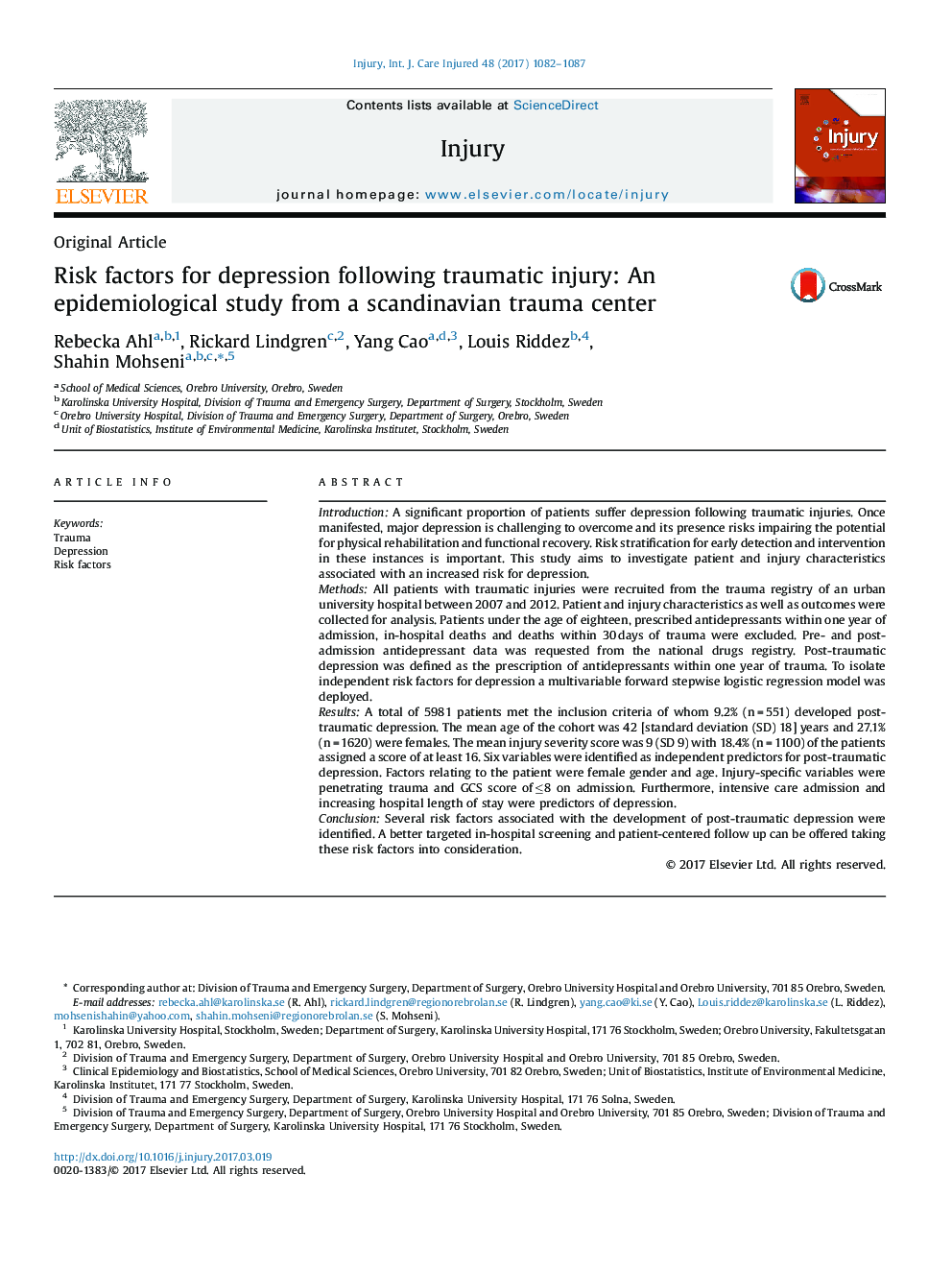| کد مقاله | کد نشریه | سال انتشار | مقاله انگلیسی | نسخه تمام متن |
|---|---|---|---|---|
| 5653164 | 1407236 | 2017 | 6 صفحه PDF | دانلود رایگان |
IntroductionA significant proportion of patients suffer depression following traumatic injuries. Once manifested, major depression is challenging to overcome and its presence risks impairing the potential for physical rehabilitation and functional recovery. Risk stratification for early detection and intervention in these instances is important. This study aims to investigate patient and injury characteristics associated with an increased risk for depression.MethodsAll patients with traumatic injuries were recruited from the trauma registry of an urban university hospital between 2007 and 2012. Patient and injury characteristics as well as outcomes were collected for analysis. Patients under the age of eighteen, prescribed antidepressants within one year of admission, in-hospital deaths and deaths within 30 days of trauma were excluded. Pre- and post-admission antidepressant data was requested from the national drugs registry. Post-traumatic depression was defined as the prescription of antidepressants within one year of trauma. To isolate independent risk factors for depression a multivariable forward stepwise logistic regression model was deployed.ResultsA total of 5981 patients met the inclusion criteria of whom 9.2% (n = 551) developed post-traumatic depression. The mean age of the cohort was 42 [standard deviation (SD) 18] years and 27.1% (n = 1620) were females. The mean injury severity score was 9 (SD 9) with 18.4% (n = 1100) of the patients assigned a score of at least 16. Six variables were identified as independent predictors for post-traumatic depression. Factors relating to the patient were female gender and age. Injury-specific variables were penetrating trauma and GCS score of â¤8 on admission. Furthermore, intensive care admission and increasing hospital length of stay were predictors of depression.ConclusionSeveral risk factors associated with the development of post-traumatic depression were identified. A better targeted in-hospital screening and patient-centered follow up can be offered taking these risk factors into consideration.
Journal: Injury - Volume 48, Issue 5, May 2017, Pages 1082-1087
